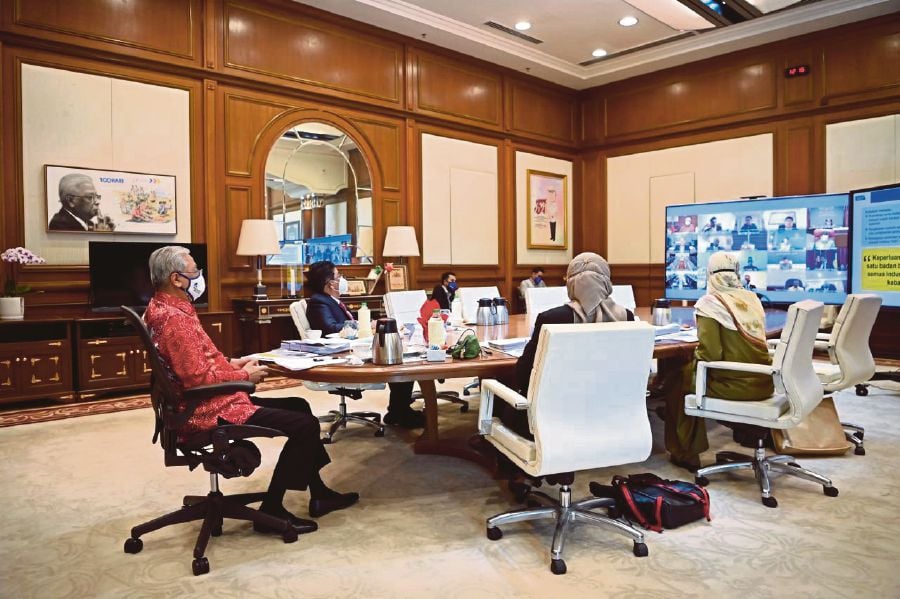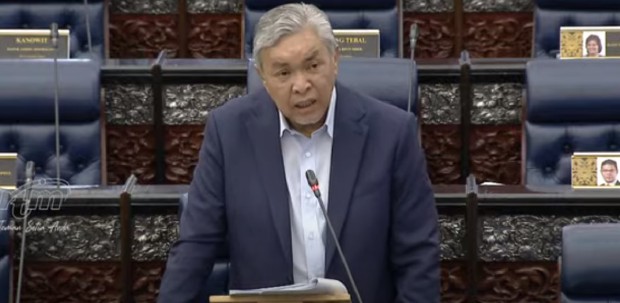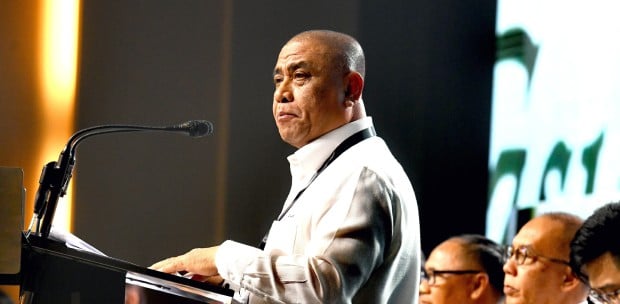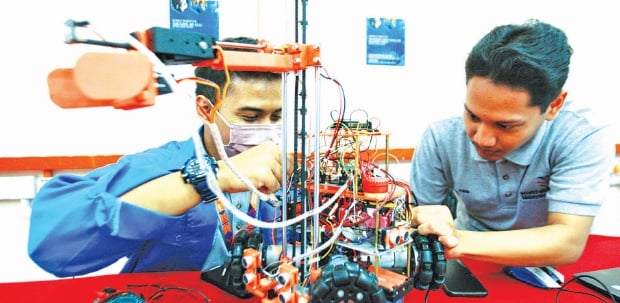KUALA LUMPUR: The Government-Industry TVET Coordination Body (GITC) has been established as a collaborative platform in steering the national TVET (technical and vocational education and training) agenda.
Prime Minister Datuk Seri Ismail Sabri Yaakob said GITC would be involved directly in the country's TVET human capital development, particularly in development of skills and workforce, the first of such cooperation.
Its membership comprises 12 individuals representing industry sectors who have agreed to work together in realising the national TVET agenda through GITC, he said in a statement.
He earlier chaired the National TVET Council (MTVET) through tele-conferencing that was attended by 13 ministers, industry figures, including those from the Federation of Malaysian Manufacturers and students' representatives.
"The MTVET meeting this time made history by recognising the setting up of the Government Industry TVET Coordination Body, GITC.
"The meeting has also agreed on the implementation of the TVET Collaboration Hub, involving 11 ministries and coordinated by the Higher Education Ministry."
Ismail Sabri said the initiative would be a strategic collaborative platform for expertise, equipment and technology between the excellence centre and TVET institutes, regional economic authorities and industry.
A total of 12 hubs have been identified including automotive, semiconductor, marine, air-conditioning, aerospace, robotics, rail, telecommunication, hospitality and tourism, as well as food technology that will be implemented in the Peninsula, Sabah and Sarawak.
He said the council had principally agreed on single TVET accreditation, but engagement process with ministries and industries must be done before presenting the matter again in the next MTVET meeting.
"The initiative is expected to strengthen the TVET symbiotic ecosystem in connecting those involved in narrowing the gap between demands and supplies of employees.
"The efforts being carried out by MTVET are especially significant in realising the strategies and initiatives drawn under the 12th Malaysia Plan."
In the 2022 Budget, he said the government had allocated RM6.6 billion to empower TVET through various initiatives to be carried out by the relevant ministries and agencies.
These initiatives, he said, would be able to prepare graduates who fulfil the industry needs, enhance the quality of TVET institutes, strengthen programmes offered that are industry-oriented and boost the industry's active involvement.
"It is time that TVET becomes the main choice for the youth in preparing themselves for the future, as TVET has been proven to create skilled, trained individuals with enterprising traits.
"The Education Ministry has also been asked to prepare early exposure on TVET education system to Form 1 students to ensure that they make the appropriate choice based on their interests."
To date, there are 1,295 public and private TVET providers across 11 ministries including 22 government TVET institutions nationwide, offering programmes at the certificate and diploma levels, he said.
He said the government has also recognised the Malaysian Vocational Diploma as one of the preparatory paths to the Malaysian Technical University Network (MTUN), namely, Universiti Malaysia Perlis (UNIMAP), Universiti Teknikal Malaysia Melaka (UTeM), Universiti Tun Hussein Onn Malaysia (UTHM) and Universiti Malaysia Pahang (UMP).
"These elements will create youths who are more independent and able to adapt in the challenging career environment.
"In realising the importance of TVET, the meeting has agreed that campaign, promotions and rebranding strategies would be carried out comprehensively to eliminate perception of TVET being a second-class education and irrelevant."
Through the campaign and promotions, TVET would be able to be at par with academics, making it a chosen career path as how it is adopted in developed countries, he added.





